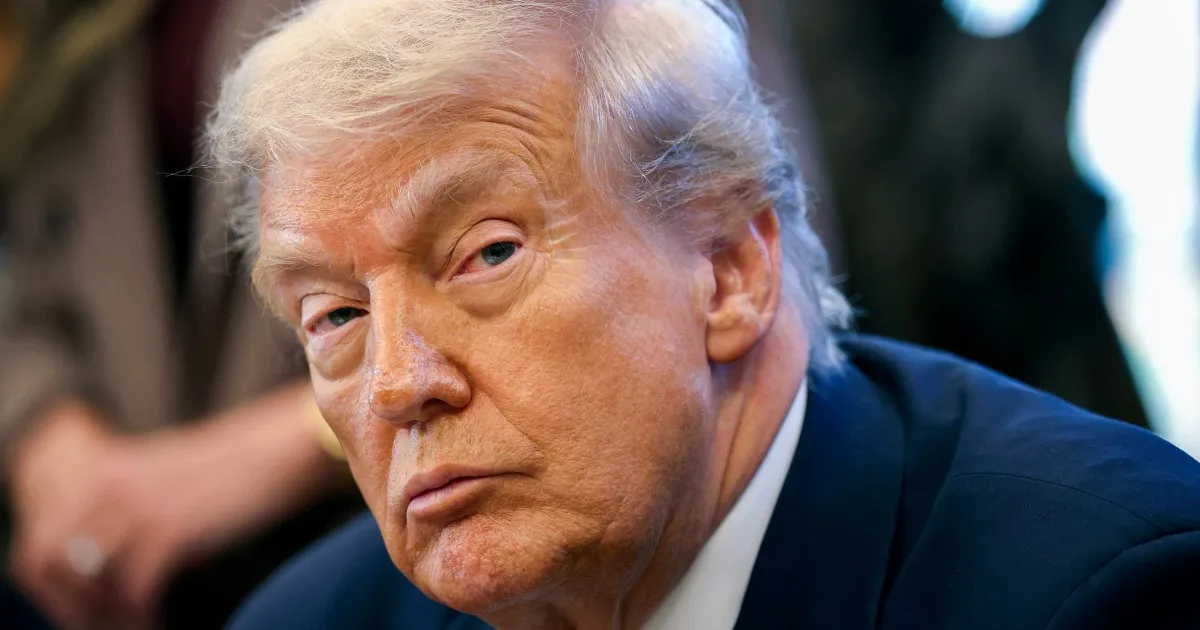
On Friday, President Donald Trump sought to clarify his previous comments regarding a group of Democratic members of Congress, whom he accused of seditious behavior. In an interview with conservative radio host Brian Kilmeade, Trump stated, “In the old days, if you said a thing like that, that was punishable by death.” His comments came in response to a video released by Democratic lawmakers, many of whom are veterans, urging military and intelligence personnel to resist illegal orders.
In the video, which featured prominent figures such as Sen. Elissa Slotkin of Michigan—who previously worked for the CIA and the Department of Defense—the lawmakers emphasized the importance of upholding the Constitution. “This administration is pitting our uniformed military and intelligence community professionals against American citizens,” Slotkin stated. The video asserted, “You can refuse illegal orders. You must refuse illegal orders,” stressing that no one is obligated to follow directives that violate the law or the Constitution.
Other participants in the video included Sen. Mark Kelly of Arizona, Rep. Chris Deluzio of Pennsylvania, Maggie Goodlander of New Hampshire, Chrissy Houlahan of Pennsylvania, and Jason Crow of Colorado. Their collective message was a strong stance against illegal orders, aiming to protect the integrity of the military and uphold the Constitution.
Following the release of the video, Trump took to Truth Social to voice his opinions, stating, “SEDITIOUS BEHAVIOR, punishable by DEATH!” He also reshared posts suggesting extreme consequences for the lawmakers. When asked about these comments, Trump claimed he was not threatening death but rather indicating that the lawmakers were in “serious trouble.” He remarked, “In the old days, it was death. That was seditious behavior.”
Despite Trump's assertions, lawmakers such as Crow have expressed concern over the implications of the president's posts. Crow's office has formally requested that the U.S. Capitol Police investigate Trump's statements, which they described as “intimidating, threatening, and concerning.” In an email to the Capitol Police, Crow detailed the increase in threats directed at him since Trump’s remarks.
The political atmosphere has become increasingly charged, with numerous reports highlighting the surge in threats and violence against public officials in recent years. A recent NBC News poll indicated that over 60% of registered voters believe that extreme political rhetoric has contributed to violent incidents, such as the assassination of conservative activist Charlie Kirk.
In light of the escalating tensions, House Speaker Mike Johnson from Louisiana acknowledged that he wouldn't have used the same language as Trump. He emphasized the need for a reduction in heated rhetoric across the political spectrum. “It’s a dangerous time,” Johnson stated, urging for a collective effort to tone down inflammatory comments from all sides.
As the debate continues, it remains crucial for leaders from all political affiliations to recognize the impact of their words. The current climate calls for a measured approach to political discourse, as threats and intimidation can have real-world consequences. Crow’s request for an investigation into Trump’s posts highlights the weight of responsibility that comes with public office, and the ongoing discourse about political violence underscores the urgent need for change in how leaders communicate.